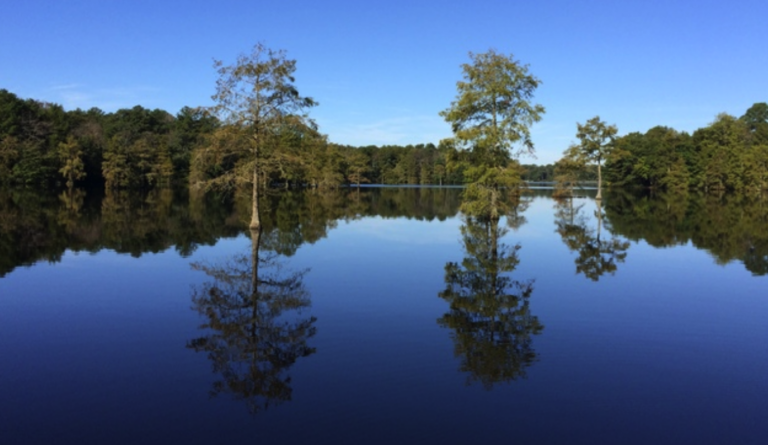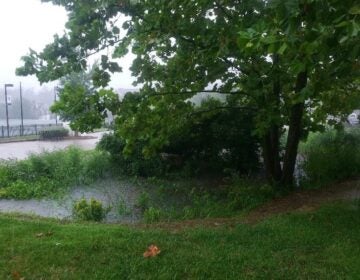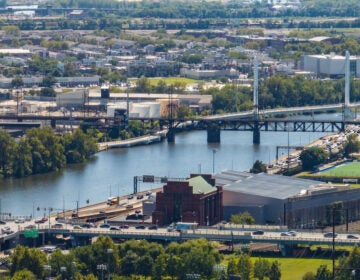Delaware lawmakers revise wetland legislation amid concerns from farmers and developers
The legislation, which would protect nontidal wetlands, comes more than a year after the U.S. Supreme Court ruled certain wetlands aren’t protected under the Clean Water Act.
Listen 1:21
Nontidal wetlands in Delaware (Courtesy of DNREC)
Delaware lawmakers are amending a newly introduced measure that aims to provide greater protections for the state’s nontidal, or freshwater, wetlands.
The legislation, sponsored by state Sen. Stephanie Hansen, D-Middletown, comes more than a year after the U.S. Supreme Court ruled certain wetlands are not protected under the federal Clean Water Act.
Delaware is the only state in the mid-Atlantic that does not have a nontidal wetland protection program. Since 1988, there have been six failed legislative attempts to protect these resources in the state.
During a legislative hearing Wednesday, environmental groups said state regulations for nontidal wetlands are long overdue. However, developers and farmers voiced concerns that Hansen’s bill could impact anyone who wants to build on wetlands, or whose property contains wetlands.
Hansen said she believes a substitute bill will address those concerns.
“We already have been able to bring together disparate groups that previously had not been able to come to an agreement, and had not come to the table with a willingness to successfully work together,” she said.
“What we heard today with some of the testimony is we need to bring a few more people to the table, as well, which we are certainly happy to do. And we have a head start on it now.”
Also known as freshwater wetlands, nontidal wetlands are found near inland areas and do not have tidal influxes of water. They can be found in several forms, including depressions, rivers and swamps.
Nontidal wetlands make up more than half of Delaware’s wetlands. However, their acres have reduced over time because of threats such as sea level rise, development and agricultural practices.
Delaware law protects saltwater wetlands. However, the state has relied on federal regulations to manage freshwater wetlands with fewer than 400 contiguous acres.
Since the most recent Supreme Court decision, almost half of Delaware’s nontidal wetlands have been vulnerable to development without oversight.
Hansen’s current legislation would allow nontidal wetlands to be managed under the same program as the state’s saltwater wetlands regulations. Under the bill, developers would be required to prevent impacts to freshwater wetlands.
Hansen introduced similar legislation in 2020 after the federal government rolled back protections for freshwater wetlands, but it did not receive support from the Delaware Department of Natural Resources and Environmental Control.
Under direction of Hansen and other lawmakers, the DNREC later compiled a report examining what would be required to create a statewide freshwater wetlands program.
Environmentalists say nontidal wetland protections are crucial because wetlands buffer against storms and flooding, provide crucial habitat for wildlife and plant species and improve water quality.
“Given how important our freshwater wetlands are to us as citizens of the state, it’s especially important that we protect them,” said Christophe Tulou, executive director of the Delaware Center for the Inland Bays.
“This is a state that’s low-lying, and those wetlands provide a whole lot of natural resources and habitat for some of our most endangered species. But [they’re] also incredibly important flood protection for many of the communities that otherwise would be more at risk if we were to compromise the remaining freshwater wetlands.”
However, during Wednesday’s hearing, farmers said they feared the bill would prevent them from draining their fields, and developers voiced concerns that the permitting process would be unfair.
“Our members live and work here, and we recognize the importance of having a great environment … but we do believe that regulations that are put into place, or any law, must be fair, predictable and efficient,” said Mike Riemann, president of the Delaware Home Builders Association.
However, Riemann said Hansen’s upcoming substitute bill will address those concerns.
Among the changes, the substitute bill expedites the permitting process for developers in some cases and better defines a wetland. The substitute bill also includes permitting exemptions for areas under half an acre that are not home to protected species.
Tulou said he believes the new bill is sensitive to developers’ concerns while affording the protection wetlands need.
“This has been a long time coming, and I think the circumstances are ripe for Delaware to step up and do the right thing for this critical part of our natural heritage,” he said.

Get daily updates from WHYY News!
WHYY is your source for fact-based, in-depth journalism and information. As a nonprofit organization, we rely on financial support from readers like you. Please give today.






